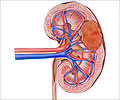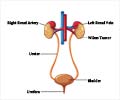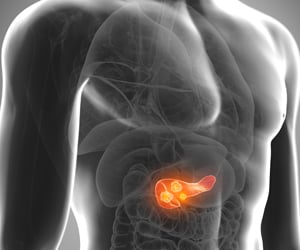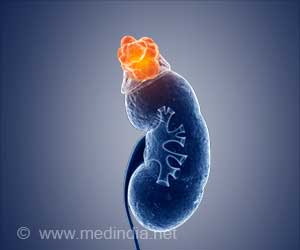The discovery of arrestin-1 synthesis in cases of kidney cancer suggests the possibility of developing anti-cancer vaccines in the near future.

TOP INSIGHT
Antibodies to a retina protein to be used as a kidney cancer marker.
The scientists wanted to find out whether it is possible to use the antibodies to arrestin-1 as well as the protein itself as a marker of cancerous kidney diseases. To do so, they dyed tissue sections, carried out blood tests, and sequenced the samples. The samples for the experiment were collected from patients that suffered from malignant and benign kidney growths. The antibodies to arrestin-1 were found in the blood serum of 75% of the patients; the protein itself was identified in 90% of benign tumors and in over 50% of cancerous ones. Increased levels of arrestin-1 were also noticed in metastasis, especially in the brain metastasis.
All subtypes of kidney tumors synthesize arrestin-1, which makes this method inefficient for differential diagnostics. However, due to its high sensitivity to benign growths, the method helps diagnose a disease on early stages when the chances for recovery are at the highest. The diagnostic procedure is reduced to simple blood test for the antibodies to arrestin-1 instead of a biopsy that is technically complicated and painful for a patient.
"The discovery of arrestin-1 synthesis in cases of kidney cancer suggests the possibility of developing anti-cancer vaccines on the basis of this protein in the near future," says Andrey Zamyatnin, a co-author of the work, and the head of the Institute of Molecular Medicine at Sechenov University.
Source-Eurekalert
 MEDINDIA
MEDINDIA




 Email
Email










